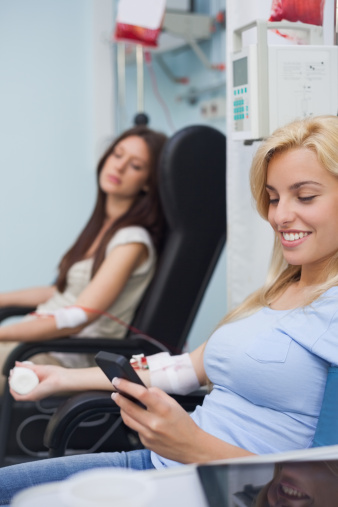- Dec 16, 2013
- By Alicia Bertsche
- In Social Media and Digital Marketing, Marketing Strategy and Planning
Unravel the Mystery of Social Media for Healthcare Digital Marketing

 A lot of ink (digital and otherwise) has been spilled in talking about social media and its impact on business.
A lot of ink (digital and otherwise) has been spilled in talking about social media and its impact on business.
Most healthcare marketers have thought about incorporating it into their digital marketing plans. Some have seriously pursued it, but many still lack clarity on how getting involved in the social space can benefit their organization.
The Problem
Healthcare marketers who aren’t already utilizing social media tend to be hesitant to begin, uncertain as to how they can apply social media in a valuable and meaningful way.
This hesitations springs from a misconception of how social media is best used in healthcare digital marketing.
If one looks at social media application as posting on Facebook, Tweeting, getting Likes and Followers, and having a YouTube, it can be difficult to see the value in spending time or money on the medium.
To find the true worth of social media for healthcare businesses, marketers have to look beyond the minutiae and connect with consumers who are using those platforms to search for information and build communities around health and healthcare topics.
How Consumers Use Social Media for Their Health
To find out how healthcare consumers are currently utilizing social media, we turn to an in-depth study conducted by PwC in 2012, Social media “likes” healthcare: From marketing to social business.
The study found that consumers performed the following health-related activities via social media:
- Post about your health experiences or updates (24%)
- Comment about other’s health experiences or updates (27%)
- Post reviews of medications or treatments or doctors or health insurers (16%)
- Share health-related videos or images (16%)
- Trace and share your health symptoms or behavior (18%)
- Join a health-related cause (20%)
- Support a health-related cause (28%)
The same study found that people are more likely to share positive health-related experiences than negative ones-- the opposite of how the public share experiences with other businesses.
But what’s the motivation for using social media to do these things? The PwC study found that users turn to social media with regard to their health for four major reasons:
- To learn what others are experiencing in terms of symptoms and reactions to treatments
- Feel supported and not alone
- Educating themselves in order to ask better questions of insurers, providers, and others
- Find real-time information and exchange for a network of information
Addressing the Privacy Concerns of Today’s Digital Healthcare Consumers
You might think that with all the talk about HIPAA and other digital privacy concerns, patients are reticent to share their health information digitally. But, in reality, Americans tend to be much more willing to speak about their medical and health history than you may have expected.
The Intel Healthcare Innovation Barometer, conducted just this year, showed a willingness amongst consumers to share their information in order to advance the field of medicine and lower costs for all.
The survey discovered that 84% of people globally would anonymously share their personal health information, such as lab results, if it could lower medication costs or overall cost to the healthcare system.
In fact, more survey’s respondents claimed to be more willing to share their health records (47%) than their phone records (38%) or banking information (30%) to aid innovation.
However, the PwC study highlights individuals’ concerns that their information be tied to them and made public. 41% of consumers expressed specific concerns that their insurance premiums would be increased if they shared certain health information via social media.
Applying Knowledge of Consumer Behavior to Corporate Healthcare Social Media Engagement
So, we’ve learned a few basic things about people’s attitudes toward social media, medical privacy, and using social media to speak about their health.
According to these statistics, then, consumers want to receive some kind of value from the application of social media to solve health issues or engage in health conversation.
Social media provides us the tool to directly engage with the health consumer instead of simply having a one-way conversation like most traditional media restricts us to. We know that consumers are willing to share information regarding their health via social media and other web tools. The question now for each of our organizations is, “How can we use this conversation tool to provide value to our audience?"
The answer will be different for each of us - depending on industry, target consumer, product offerings, and other variables. To find what works best for your organization, keep the goal of providing value at the top of your priority list.





